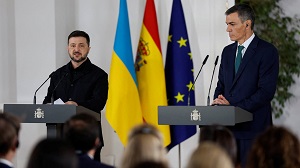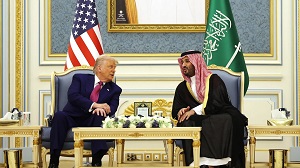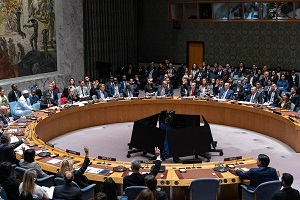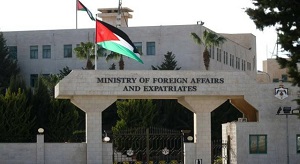When the narrative shifts: The UN resolution that challenged Israel’s Gaza strategy - By Michael Jansen, The Jordan Times
Since October 7, 2023, Israel has carried out a two-pronged attack on Palestine and Palestinians. The Israeli army and air force have mounted a full-scale military campaign in Gaza while Israeli settlers, often backed by the army, have lashed out at Palestinian farmers harvesting their olives. The UN documented more than 260 settler attacks in October alone which have caused Palestinian casualties or damage to property in the West Bank. This was the highest monthly count since monitoring began in 2006. The narrow coastal strip, which is half occupied by Israel, has been devastated to make it uninhabitable for 2.2 million Palestinians while Israeli check points, settlements and military exclusion zones make the West Bank difficult for 3.2 Palestinian civilians to live normal lives. Israel's aim is to crush Palestinian resilience and resistance to forever Israeli occupation and compel Palestinians to emigrate from East Jerusalem, the West Bank and Gaza.
However, Israel's latest politico-miliary campaign has come under unexpected challenge. On Monday, the UN Security Council adopted a US resolution calling for disarming non-state militias (particularly Hamas), a transitional administration and an International Stabilization Force (ISF) for Gaza. At the insistence of the Arabs, the resolution envisions a “credible pathway” to Palestinian statehood. The state would, of course, include East Jerusalem and the West Bank. This is flatly rejected by Israeli Prime Minister Benjamin Netanyahu, but he cannot contradict his sole international ally in Washington at a time Israel's international standing is at an all-time low. Israel is no longer regarded as a "victim" but is seen as a "victimiser." Furthermore, US President Donald Trump is a businessman looking for deals unlike his predecessor Joe Biden who proclaimed himself to be a committed Zionist from his youth.
It remains to be seen if Trump will follow through by insisting on implementation not only of the resolution but also his 20-point peace plan despite Israel's opposition. Under this plan Hamas would disarm and its fighters would be given amnesty or allowed to leave Gaza. Hamas would relinquish its role in governance. Security would be assumed by an International Stabilisation Force (ISF) which would assume control as the Israeli army withdraws. Aid would be immediately restored and water, sewage, electricity, hospitals, bakeries and roads rehabilitated. Equipment would be allowed into Gaza to clear rubble and carry out repairs. Supplies would be distributed by UN agencies and the Red Cross without interference from Israel or other parties. A temporary Palestinian committee of technocrats would assume responsibility for governance until the Ramallah-based Palestinian Authority completed essential reforms before taking over Gaza. This is essential so that Palestinians will live under a single administration. Finally, a panel of experts would draw up a Gaza economic and development plan which would attract investment and create jobs which would encourage resident Gazans to stay and those in the diaspora to return.
Veteran US negotiator Aaron David Miller summed up the development on social media by writing, “Whether the [Security Council] resolution can be implemented is unclear. But it reflects two new realities – Trump has internationalized the Gaza component of Palestinian issue and supported a two-state solution as an end state.” Times are ‘a changing, as they say.
Latest News
-
 Spain PM announces $710 million in military aid for Ukraine
Spain PM announces $710 million in military aid for Ukraine
-
 Prime minister reiterates centrality for Palestinian cause for Jordan
Prime minister reiterates centrality for Palestinian cause for Jordan
-
 Trump to meet Saudi Crown Prince on Tuesday
Trump to meet Saudi Crown Prince on Tuesday
-
 UN Security Council adopts US resolution on Gaza peace plan
UN Security Council adopts US resolution on Gaza peace plan
-
 Jordan condemns Israeli minister’s calls to target Palestinian leadership
Jordan condemns Israeli minister’s calls to target Palestinian leadership